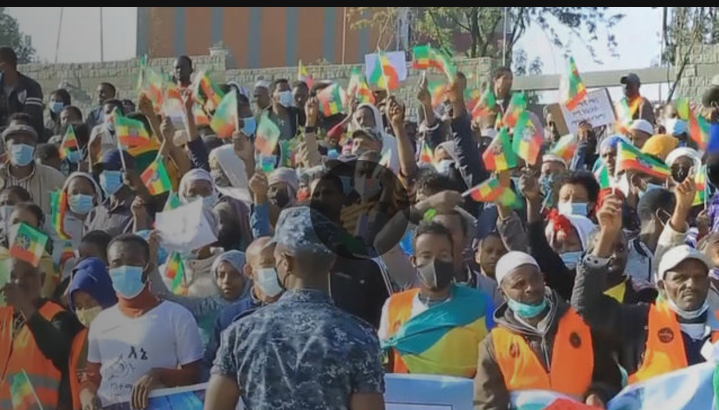Nation planning inclusive dialogue to solve internal conflict, says State Minister Redwan Hussien
According to its state minister, Ethiopia will ensure inclusivity of all agendas at stake, including controversial constitutional elements to be discussed in a planned national dialogue to put forth a lasting solution to the internal conflict.
On the sidelines of the Turkey-Africa Partnership summit, Redwan Hussien told Anadolu Agency that Ethiopia is moving forward to give broadened political space through a planned dialogue.
“The new inclusive dialogue will solve any discord that we used to have because it will be solved in a civil manner. We can amend our constitution so that all Ethiopians could see themselves relevant to participate in this broader process,” he said.
Ethiopia vows to table all agendas including referendum in national dialogue
There are controversies in the Ethiopian Constitution that are long urged to be debated nationwide.
“With the political sphere being broadened, all elements of the Constitution being open for discussion in the coming national dialogue, there is no moral reason to pick up an arm,” he said.
Redwan said the dialogue is open for any reasonable discussion, which might be culminated as far as the referendum.
About the Tigrayan Peoples Liberation Front (TPLF) ‘s inclusion in the dialogue, Redwan said it is “hard to tell,” and the “element” is not the only one to represent the Tigran people.
Stressing rejection of reconciliation efforts by the government, he said the TPLF made it hard on itself to bring a civil solution.
“It’s not for me to tell, but if TPLF hands over its arms, and some of its criminal entities within, there are many possibilities,” he said.
Now in its 13th month, the armed conflict between government forces and fighters from the TPLF, a once-dominant group during the pre-Abiy Ahmed leadership, has claimed thousands of innocent lives and left many facing famine-like conditions as affected areas are cut off from international aid.
It is also designated a “terror group” by the government.
Misinformation about the current status of the conflict
Regarding the current status of the conflict, Redwan reiterated that the government is pushing the “rebel group” to its “so-called proper region” despite a major propaganda campaign.
“As the world is watching, particularly some countries in the West, most of their media are supporting the rebel group. They don’t seem to wish this conflict to be over,” he said, pushing their support for the TPLF against the facts.
He said there is an explicit interference in the country’s internal affairs leading the Ethiopian people to stand united. “What matters is Ethiopians solidarity against interferences,” he said.
“We cannot avoid interference, but we can avoid conflicts within ourselves. Interference will always be there, but we can overcome it unanimously.”
Regarding foreign interference and the current stance of Turkey, he said the two countries face the same difficulties and have many similarities.
Hailing more than a century-old relations with Turkey, he stressed that Turkey and Ethiopia are at a point where they look each other “eye to eye” and pull together in many areas.
“The Ethio-Turkish interest has never crossed, our interests have managed to go alongside. It will continue to prosper in every aspect, and we will further enhance our bilateral ties,” he said.
Ethiopian-Sudanese border conflict
Drawing attention to the simplicity of the issue, Hussain said the Fashaga border conflict is a case dating to colonial times.
He said the Sudanese and Ethiopian people were living together enjoying similar culture and values, the border has not been a problem.
With a 1,600-kilometer (994-mile) shared border, Ethiopia and Sudan face issues regarding the Fashaga Triangle, a decades-long-disputed border without hard demarcation.
Despite provocations, particularly from the military wing of the Sudanese transitional government, Ethiopia refused to respond because it believed that the conflict was instigated by an “artificial issue” created by external actors, which is of no use for both countries, said Redwan.
According to him, Ethiopia and Sudan have their internal challenges to engage on besides the border issue. This small case was cooked by “some external actors with vested interests” who are aggravating the problem in both countries.
“We know who pushed it,” he said.
Ethiopia was long accusing Egypt of involving in Ethiopian internal affairs, especially to sabotage the building of GERD, a mega-dam project over the blue Nile river.
AA News
